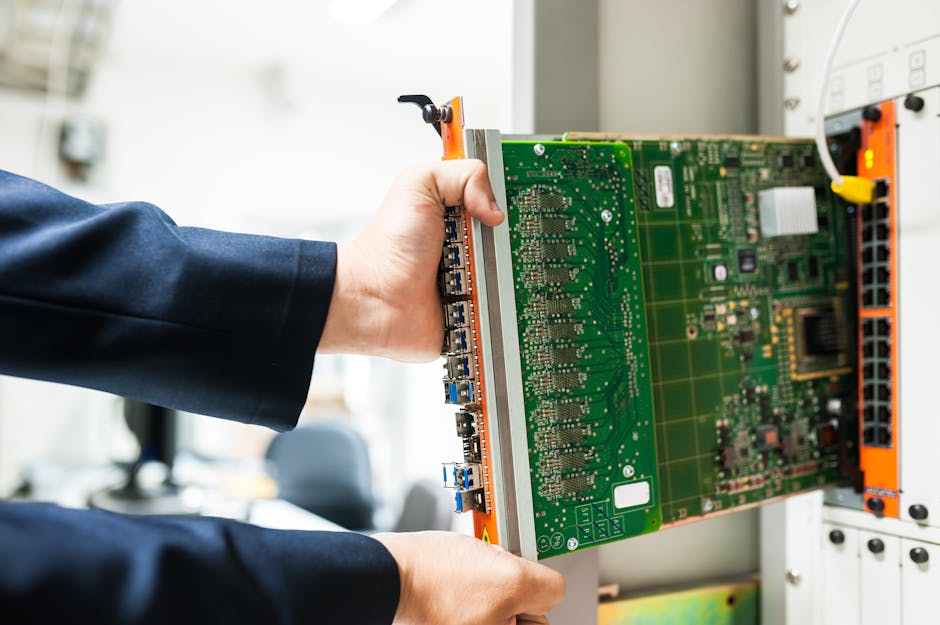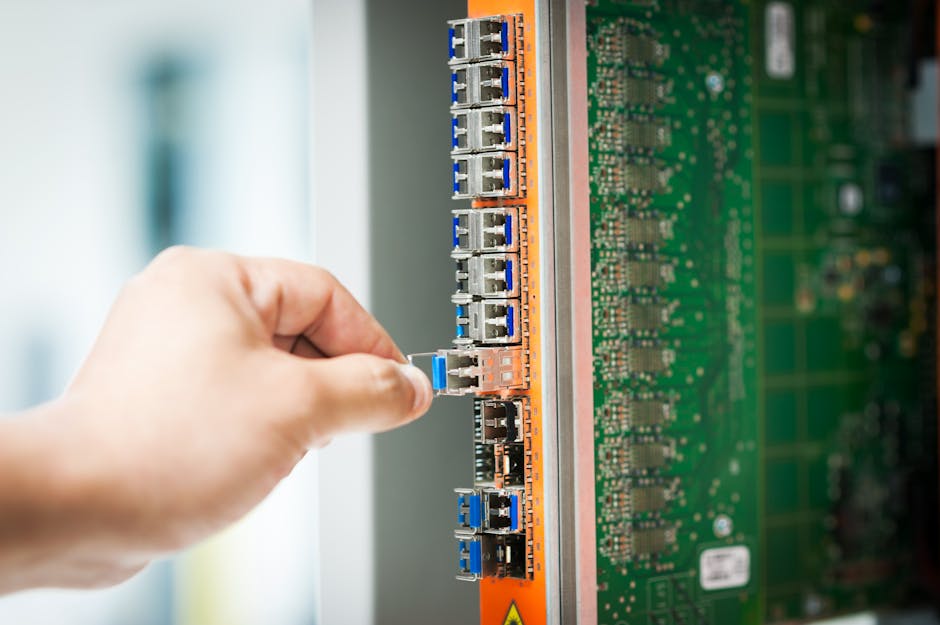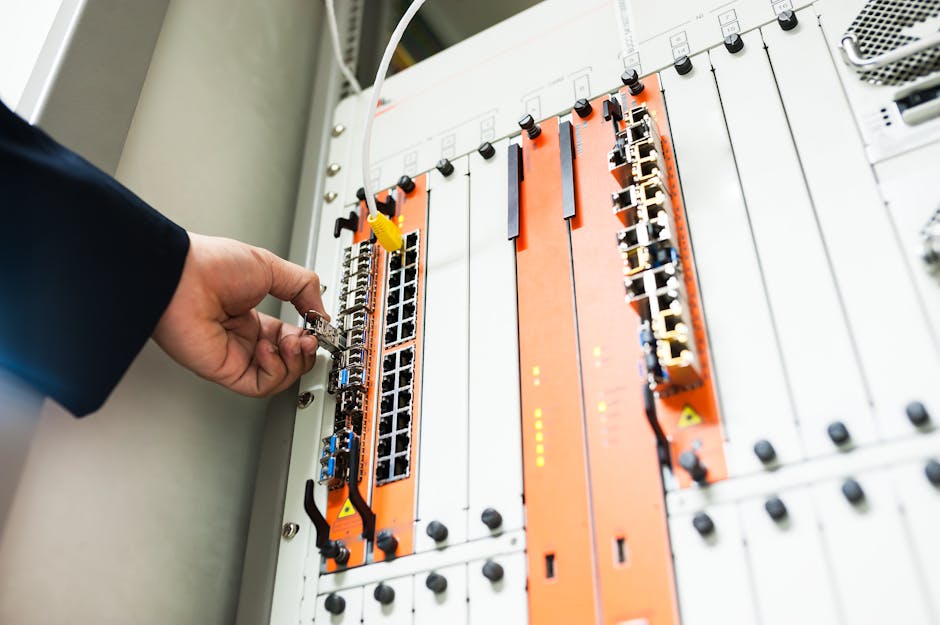Transform Your Internet Experience: How to Test Your Internet Speed and Improve It
Imagine this scenario: you’re in the middle of an important video conference call, and suddenly, your screen freezes, your audio cuts out, and you’re left feeling frustrated and disconnected. Sound familiar? In today’s digital age, a reliable internet connection is essential for both work and leisure activities. But how do you know if your internet speed is up to par? And if it’s not, how can you improve it? In this comprehensive guide, we will delve into the world of internet speed testing and optimization, empowering you to take control of your online experience.
The Importance of Internet Speed

Before we dive into the specifics of testing and improving your internet speed, let’s first understand why it matters. Internet speed refers to the rate at which data is transferred between your device and the internet. It impacts everything from streaming quality and download speeds to online gaming performance and video conferencing stability. In today’s interconnected world, where we rely on the internet for work, communication, entertainment, and more, a slow or unreliable connection can significantly hinder our productivity and enjoyment.
According to recent studies, a significant percentage of users are dissatisfied with their internet speeds, citing issues such as buffering videos, slow downloads, and dropped connections. This dissatisfaction can lead to decreased productivity, increased stress levels, and a generally frustrating online experience. By testing and optimizing your internet speed, you can address these issues and ensure a smoother, more seamless browsing experience.
Testing Your Internet Speed

One of the first steps in improving your internet speed is to test your current connection. This process involves measuring your download speed, upload speed, and latency to determine the overall performance of your internet connection. There are several online tools and websites that allow you to perform these tests quickly and easily. Some popular options include Speedtest by Ookla, Fast.com by Netflix, and Google’s internet speed test.
When conducting an internet speed test, it’s essential to consider a few key factors. First, make sure to perform the test on a device that is directly connected to your modem or router via an Ethernet cable. This ensures a more accurate measurement of your true internet speed, as Wi-Fi connections can be affected by various factors such as distance from the router, interference, and signal strength.
Additionally, it’s recommended to run multiple speed tests at different times of the day to get a comprehensive understanding of your internet speed variability. Internet speeds can fluctuate based on network traffic, time of day, and other external factors, so conducting multiple tests can give you a more accurate picture of your average connection speed.
Interpreting Your Speed Test Results

Once you’ve conducted an internet speed test, you will typically receive three key pieces of information: download speed, upload speed, and latency. Download speed refers to the rate at which data is transferred from the internet to your device, while upload speed measures the rate at which data is transferred from your device to the internet. Latency, on the other hand, refers to the time it takes for data to travel from your device to its destination and back.
So, what do these numbers mean, and how do you interpret them? In general, faster download and upload speeds indicate a more reliable and efficient internet connection. For example, if you’re experiencing slow loading times when streaming videos or downloading files, it may be due to a low download speed. Similarly, a high latency can result in laggy online gaming experiences and delayed responses in video calls.
It’s important to compare your speed test results with the recommended speeds for your online activities. For instance, streaming services like Netflix and Amazon Prime Video typically recommend a minimum download speed of 3-5 Mbps for standard-definition streaming and 25 Mbps for 4K streaming. Online gaming, on the other hand, requires lower latency and consistent upload speeds to ensure smooth gameplay.
Factors Affecting Internet Speed

There are several factors that can impact your internet speed, ranging from technical issues to environmental variables. By identifying and addressing these factors, you can optimize your internet connection for better performance. Some common factors affecting internet speed include:
1. Network Congestion
Network congestion occurs when multiple devices are competing for bandwidth on the same network, leading to slower speeds for individual users. This often happens during peak hours when many people are online simultaneously. To alleviate network congestion, consider upgrading to a higher-speed internet plan or using Quality of Service (QoS) settings to prioritize certain devices or applications on your network.
2. Distance from the Router
The distance between your device and the router can impact the strength and stability of your Wi-Fi connection. If you’re experiencing slow internet speeds, try moving closer to the router or investing in a Wi-Fi range extender to improve signal strength in distant areas of your home or office.
3. Interference
Interference from other electronic devices, such as microwaves, cordless phones, and Bluetooth speakers, can disrupt your Wi-Fi signal and slow down your internet speed. To minimize interference, keep your router away from other electronic devices and use the 5GHz frequency band instead of the 2.4GHz band, which is more prone to interference.
4. Outdated Hardware
If you’re using outdated or faulty hardware, such as an old modem or router, it can bottleneck your internet speed and limit your connection performance. Consider upgrading to newer, more advanced hardware to take full advantage of your internet service provider’s speeds.
5. Software Issues
Software issues, such as malware infections, background processes, and outdated drivers, can also impact your internet speed. Regularly update your operating system, antivirus software, and device drivers to ensure optimal performance and security.
Improving Your Internet Speed
Now that you’ve tested your internet speed and identified potential issues, it’s time to take action to improve your connection. Here are some tips and strategies to boost your internet speed:
1. Upgrade Your Internet Plan
If you’re consistently experiencing slow internet speeds, consider upgrading to a higher-speed internet plan offered by your service provider. Higher-speed plans typically offer faster download and upload speeds, reducing buffering times and improving overall performance.
2. Optimize Your Wi-Fi Network
To optimize your Wi-Fi network for faster speeds, try the following tips:
- Place your router in a central location to ensure maximum coverage throughout your home or office.
- Use a Wi-Fi range extender to boost signal strength in areas with poor coverage.
- Change the channel or frequency band on your router to reduce interference from other devices.
- Enable WPA3 encryption to secure your Wi-Fi network and prevent unauthorized users from accessing your connection.
3. Update Your Hardware
Consider upgrading to newer and more advanced hardware, such as a high-speed modem, a dual-band router, or a mesh Wi-Fi system. These devices offer improved performance, better coverage, and enhanced security features to optimize your internet connection.
4. Reduce Background Processes
Close unnecessary applications and background processes on your device to free up system resources and improve internet speed. This can help prioritize bandwidth for essential tasks and prevent resource-intensive applications from hogging your connection.
5. Use Ethernet Connection
For the most stable and reliable internet connection, consider using an Ethernet cable to connect your device directly to the modem or router. Ethernet connections offer faster speeds, lower latency, and reduced interference compared to Wi-Fi connections, making them ideal for bandwidth-intensive activities like gaming and streaming.
6. Monitor and Manage Your Network
Use network monitoring tools and apps to track your internet speed, network activity, and performance metrics. By monitoring your network, you can identify bottlenecks, troubleshoot issues, and optimize your connection for better speed and reliability.
Common Misconceptions About Internet Speed
Despite the widespread use of the internet, there are still several misconceptions and myths surrounding internet speed and performance. Let’s debunk some common misconceptions:
1. Myth: Faster Internet Speeds Always Equal Better Performance
While faster internet speeds can certainly enhance your online experience, they are not the sole determinant of performance. Factors like latency, packet loss, and network congestion can also impact your browsing experience, even with a high-speed connection.
2. Myth: Wi-Fi Speed is the Same as Internet Speed
Wi-Fi speed refers to the connection speed between your device and the router, while internet speed measures the rate at which data is transferred between your device and the internet. Wi-Fi speed can be affected by various factors like interference, signal strength, and network congestion, so it’s essential to differentiate between the two when assessing your connection performance.
Conclusion: Empower Yourself with Faster Internet Speeds
To wrap things up, testing and improving your internet speed is a crucial step towards ensuring a seamless and enjoyable online experience. By understanding the factors that influence your internet speed, interpreting speed test results, and implementing optimization strategies, you can enhance your connection performance and unlock the full potential of your internet service.
So, the next time you find yourself frustrated by slow loading times or laggy video calls, remember that you have the power to test your internet speed and make meaningful changes to enhance your online experience. Take control of your internet speed, optimize your connection, and enjoy a faster, more reliable browsing experience.




